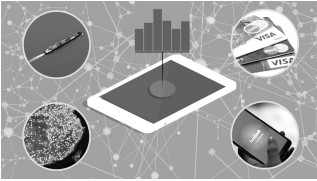Data Led Governance and Policy Making

Objectives
Evidence based policy making should be made integral to the overall governance structure in New India, 2022-23. To achieve this, timely generation and dissemination of robust data at all levels of governance would be a pre-requisite. This would require:
- Collecting data for new measurable parameters using latest technologies.
- Improving efficiencies in processes related to existing data collection by government departments and agencies.
- Expanding warehousing facilities for storing and integrating data from different sources.
- Making data available for industry practitioners, academicians, researchers, etc., wherever feasible.
- Integrating data analysis and interactive data visualization into all policy formulation.
Statistical System in India
At the ....
Do You Want to Read More?
Subscribe Now
Take Annual Subscription and get the following Advantage
The annual members of the Civil Services Chronicle can read the monthly content of the magazine as well as the Chronicle magazine archives.
Readers can study all the material before the last six months of the Civil Services Chronicle monthly issue in the form of Chronicle magazine archives.
Related Content
- 1 Climate Finance COP29 and the Road Ahead - By Noopur Joshi
- 2 Transforming Global Governance Key Issues & the Need for Reformed Multilateralism - By Alok Singh
- 3 Women Entrepreneurship in India Fostering Economic Growth, Innovation and Social Progress
- 4 BRICS & the Changing Global Landscape Navigating Opportunities and Challenges for India By - Alok Singh
- 5 Social Entrepreneurship in India Rise, Impact & Prospects - By Noopur Joshi
- 6 Adopting Climate Resilient Agriculture India’s Challenges and Solutions - By Ranjeet Shah
- 7 Strengthening Food Safety Regulations in India - By Ranjeet Shah
- 8 India and the Quad : Fostering Partnership for a Secure and Prosperous World - By Alok Singh
- 9 BioE3 Policy : Boosting Innovation and Sustainability in Biomanufacturing - By Noopur Joshi
- 10 Debate over Lateral Entry into Civil Services - By Alok Singh

- 1 Optimizing the Use of Land Resources
- 2 Modernizing City Governance For Urban Transformation
- 3 Civil Services Reforms
- 4 Legal, Judicial and Police Reforms
- 5 The North-East Regi
- 6 Balanced Regional Development: Transforming Aspirational Districts
- 7 Scheduled Castes (SCs), Scheduled Tribes (STs), Other Backward Classes (OBCs), Other Tribal Groups and Minorities
- 8 Senior Citizens, Persons with Disability and Transgender Persons
- 9 Gender
- 10 Nutrition
- 11 Universal Health Coverage
- 12 Human Resources for Health
- 13 Comprehensive Primary Health Care
- 14 Public Health Management and Action
- 15 Skill Development
- 16 Teacher Education and Training
- 17 Higher Education
- 18 School Education
- 19 Sustainable Environment
- 20 Water Resources
- 21 Swachh Bharat Mission
- 22 Smart Cities for Urban Transformation
- 23 Digital Connectivity
- 24 Logistics
- 25 Ports, Shipping and Inland Waterways
- 26 Civil Aviation
- 27 Railways
- 28 Surface Transport
- 29 Energy
- 30 Minerals
- 31 Travel, Tourism and Hospitality
- 32 Housing For All
- 33 Financial Inclusion
- 34 Doubling Farmers’ Income (III): Value Chain & Rural Infrastructure
- 35 Doubling Farmers’ Income (II): Policy & Governance
- 36 Doubling Farmers’ Income (I): Modernizing Agriculture
- 37 Industry
- 38 Technology and Innovation
- 39 Employment and Labour Reforms
- 40 Growth
- 41 Minerals
- 42 Water
- 43 Forest
- 44 Land
- 45 Climate Change Rulebook
- 46 G-20 Summit 2018

